The weird world of altruistic YouTube
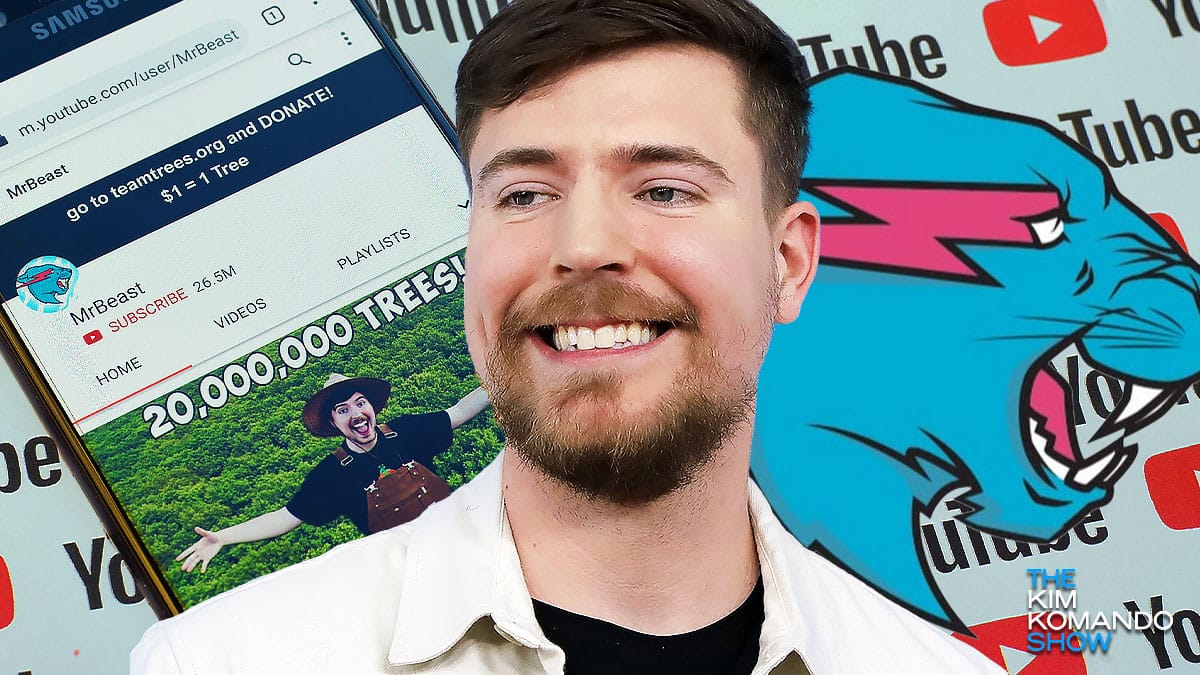
It all started innocently enough. I bought a new lawn mower and searched YouTube to figure out how to use it well. I'd only ever mowed a tiny patch before and figured I should know what real landscaping people do in their jobs so I could replicate it. I watched a few videos, picked up some techniques, and learned how to service it in case anything went wrong.
Then I started getting suggestions for “oddly satisfying” time-lapse videos of a guy that runs a lawn care business in Florida. I kinda fell for this genre instantly, since watching something relaxing-slash-borderline-hypnotic was a great way to wind down after a long day. I do remember he used to constantly talk about how much money he charged customers, to kinda flex on how much money people could make in the business.
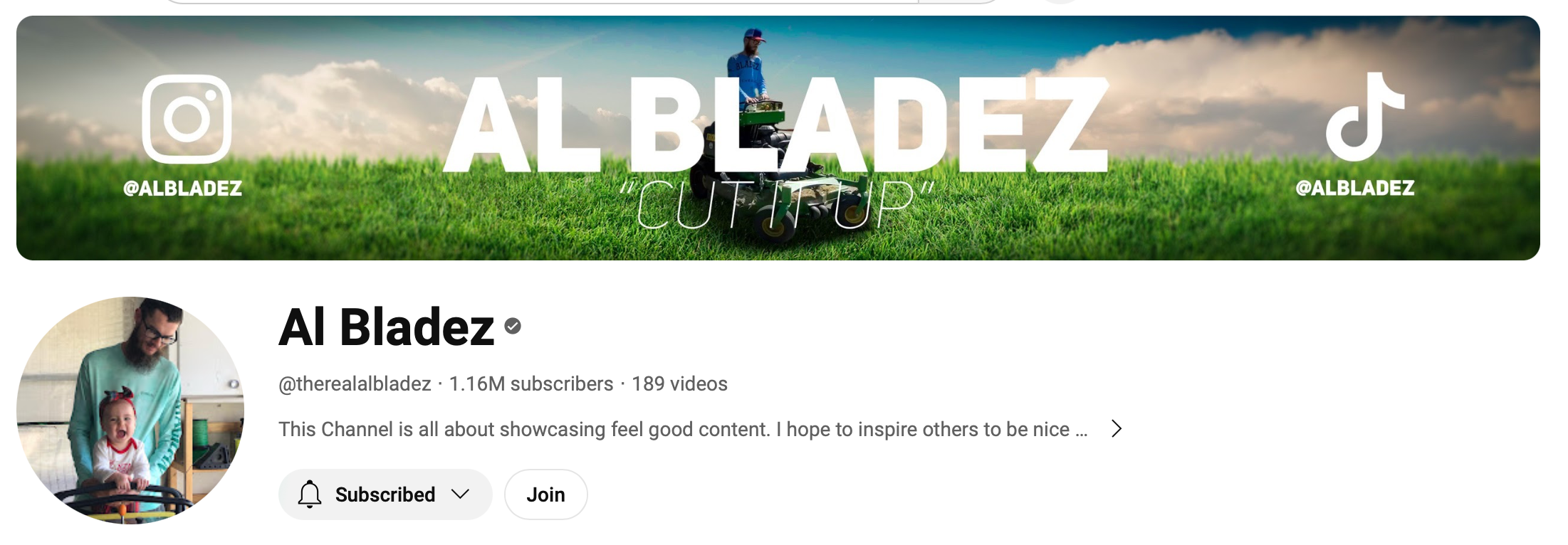
Soon after, I was following three more lawn care guys making YouTube videos, with more showing up in my recommended lists. Eventually, I grew to like one of them in particular: a guy that goes by Al Bladez. I continued to learn tricks of the trade on how to cut and edge a lawn while also getting to veg out before bed (also sometimes he would rap an original song about cutting grass at the end of a video which was kind of like putting extra sprinkles on already tasty frosting)
At some point, the Al Bladez channel started to skew towards altruism. This was a lawn care guy with his own paying customers, but the construct of his channel was he set aside one day a week to do one free overgrown lawn. At first his channel was all about the quest to find the tallest uncut grass possible (tall grass bogs down most mowers, so he's sponsored by mower companies that want to show how their best models can do tough jobs). But then he became all about finding people who needed the help the most and I'm sure he figured that out when one lawn had ten times the views because it had a great story attached to it.

His channel now has lots of sad stories, people down on their luck or in and out of the hospital that couldn’t keep cutting their lawn. Most recently, the channel has grown to where he not only does a free lawn transformation but he also pays the owner’s rent or mortgage for a month in cash when he’s done.
So how does that even work?
The economics of YouTube
Numbers are few and far between, but my hunch from seeing a few creators talk about this is that for every million views a video gets on YouTube, the people behind it might make a couple grand, up to about five thousand dollars. I can tell there are a lot of factors at play, but long videos (even though they’re sped up through time lapse, a lawn moving video of an entire property can be over 90min in length) are particularly lucrative, because more ads can play to viewers.
Al Bladez does major full yard transformations, and I know from hiring people to do landscaping or field mowing myself that a 1-2 person crew working for a long day or a couple days can easily run a couple grand. So what he offers people is substantial, and the end result is fun to watch. The yards are truly transformed and he does a lot of work to find deserving people it would benefit the most.
I don’t think there’s anything nefarious going on, and I don’t think the videos are faked in any way (though the titles seem to be FORMATTED to garner BIG VIEWS). But I find it fascinating when I realized this channel (like many others) might actually be lucrative for the people behind it.
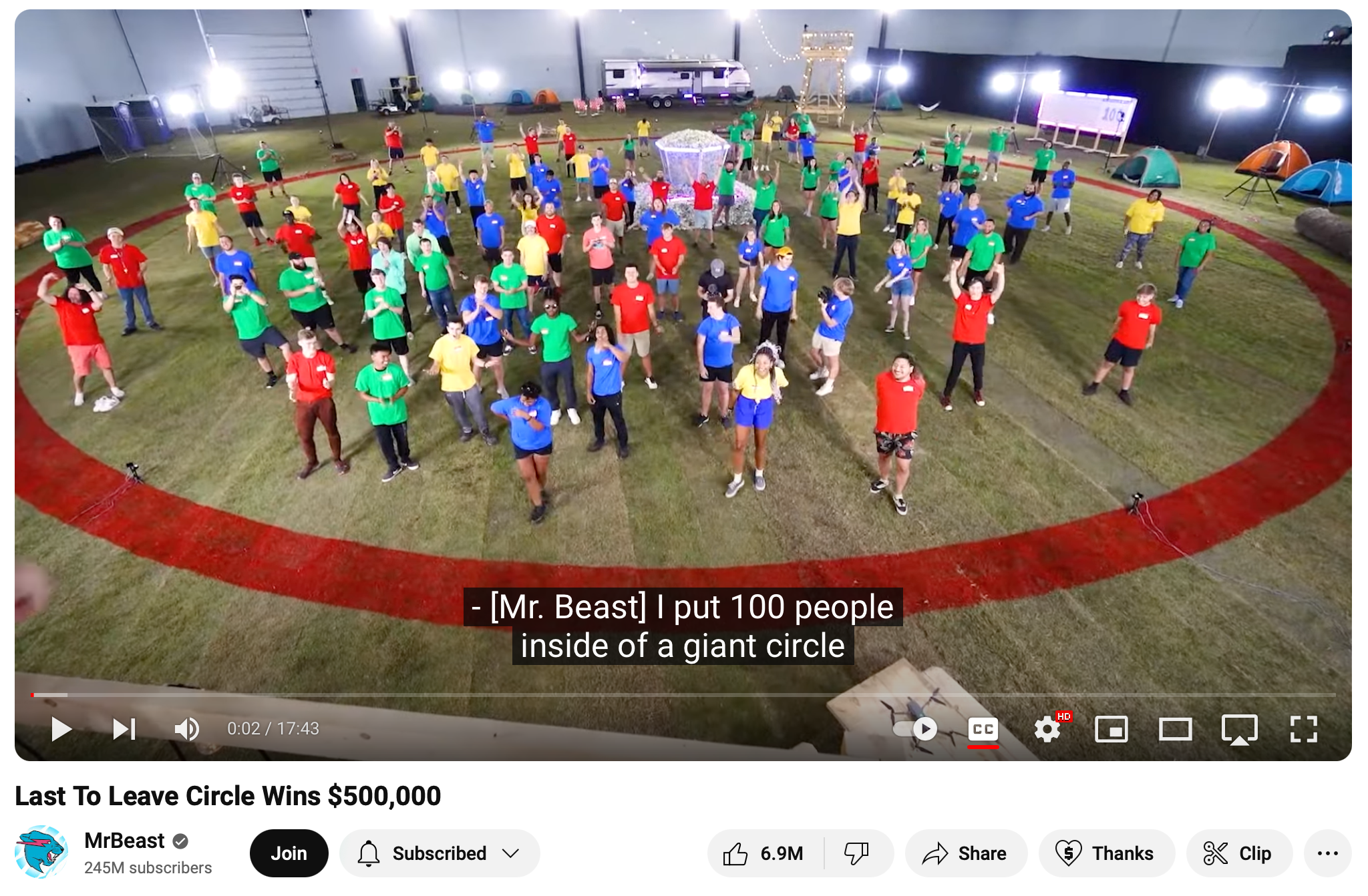
Mr. Beast is probably the most popular creator on YouTube and if you go through his archive of videos they make no sense to a newcomer at first glance.
- He gathers people to do a thing
- They do the thing
- Then he gives away lots of money and prizes to the people involved.
As a viewer, you're left to wonder: where did all this money come from? How can Mr. Beast keep doing this?
His videos get hundreds of millions of views and I've heard his business manager say in interviews that they run a thin profit, giving away as much money as they can garner from advertisers and YouTube combined, and apparently hover near bankruptcy at all times.
The altruism angle of YouTube continues to grow
Mr. Beast is wildly successful so of course people copy his model. Big Daws and That Was Epic both pivoted from doing prank videos on Vine years ago to now giving away money/things to strangers. Each of them has millions of viewers and sponsors and basically they just hand out ten grand worth of cash or prizes to strangers for doing something seemingly mundane.
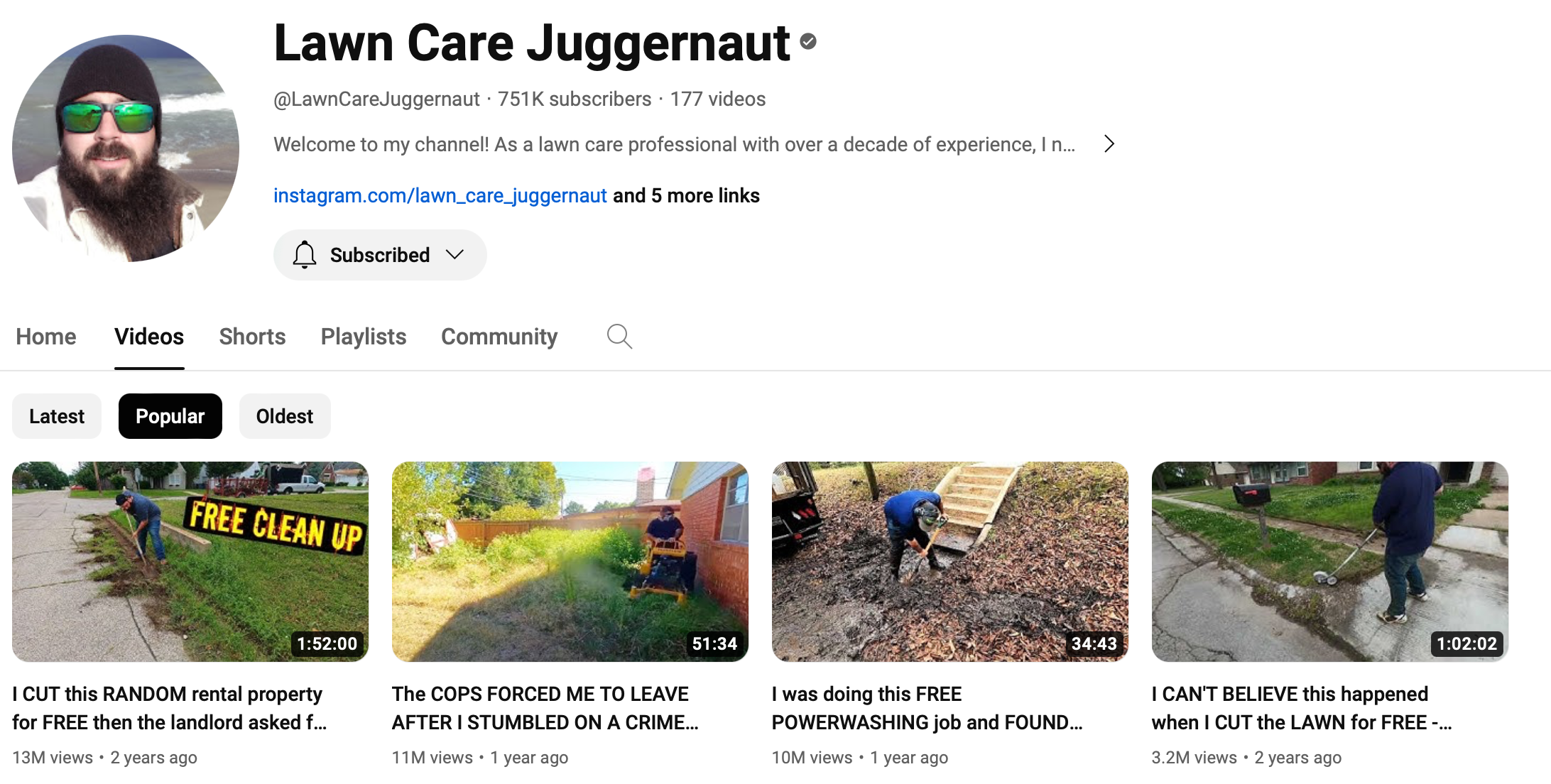
What’s funny is the trend I noticed in lawn care has spiraled into more guys doing a similar thing too. There’s The Lawncare Juggernaut who also finds the worst yards from the most down on their luck folks. He even runs The Boring Channel where he plays the same videos, but with less talking (his main channel has him talking over the grass cutting, sometimes telling you how to set up a lawn care business, sometimes he reads a favorite bible verse?). There’s SB Mowing too, and he even does power washing for free (another great subject for long, mesmerizing, satisfying videos that likely make a lot of ad revenue).
I've noticed the idea has spread to all sorts of other realms.
A retired US Olympic runner has gotten into fitness and training and comes up with physical stunts/tests he asks people in public to do, all to possibly make lots of money if they can pull them off.
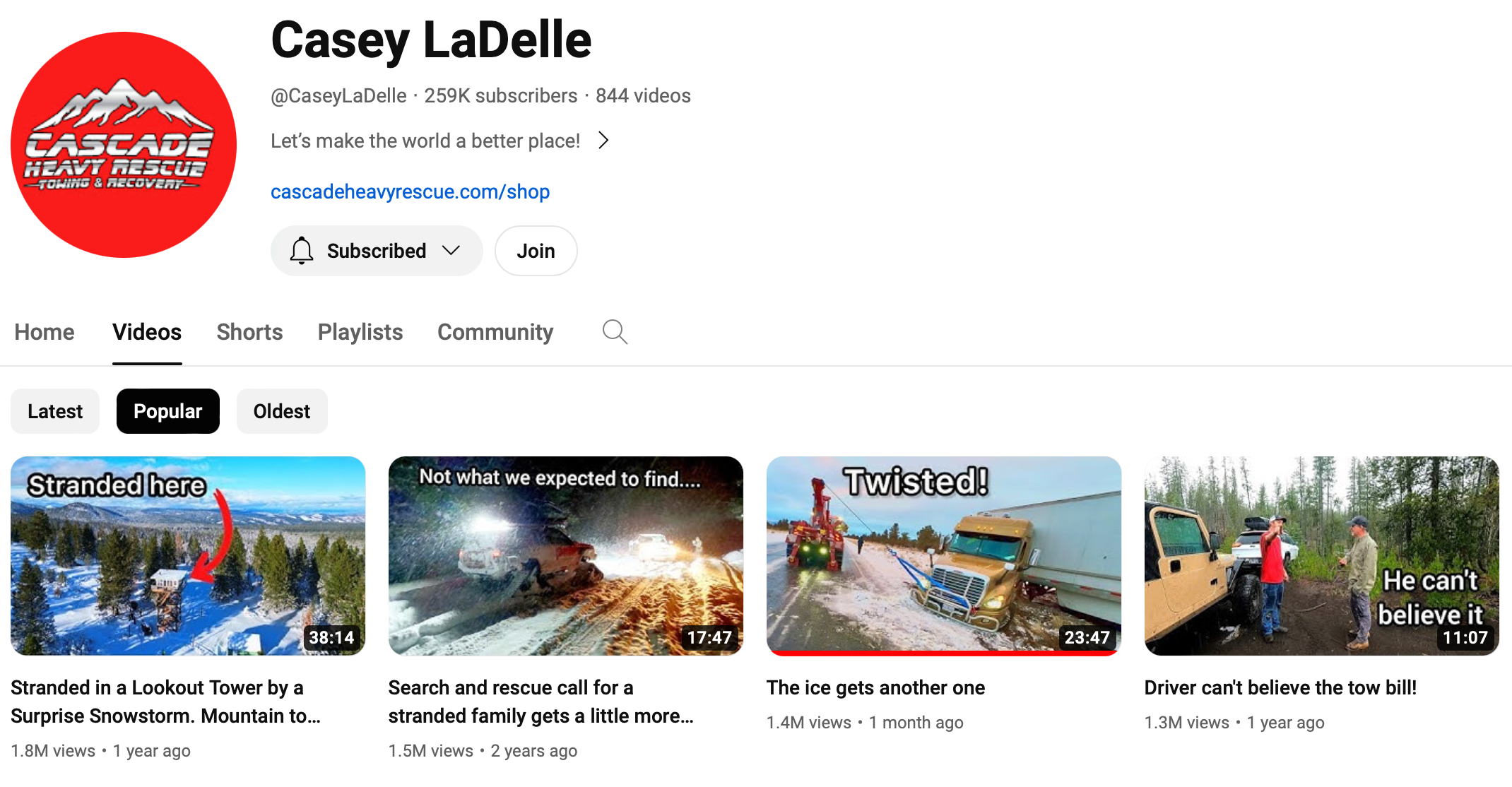
There’s towing/rescue/recovery being done for free and the creator looks right into the camera at the end of his videos to surprise the people he is saving by saying it’s all free and YouTube ad revenue pays for it (a towing company bill is normally several hundred dollars to low thousands of dollars). He also maintains a Patreon community where he gives away the money that comes from it. I've also noticed another guy doing off-road recovery pushes his free help angle.
There is a scuba guy that dives in popular places and tries to return every phone or valuable back when he can track the owners down.
There’s also a bike restoration guy that gives most of the bikes away to teens or deserving folks in his hometown.
What makes this feel unique
It seems like a pretty well-worn path at this point. Start a YouTube channel with some compelling videos, and when you amass enough views/revenue, use that money to entice strangers into helping you make more videos that get more revenue. These people repeat their success on other platforms, like TikTok and Instagram summaries of their long videos, or by selling products they endorse or help create.

What got me thinking about this stuff at all was finding people like Al Bladez, and thinking if you saw a scruffy guy cutting someone's overgrown lawn somewhere, and then you heard he did it for free but also gave the homeowner a thousand bucks and still somehow makes enough to support his family, you wouldn't believe it, but it sure seems to be happening here.
Subscribe to our newsletter.
Be the first to know - subscribe today





